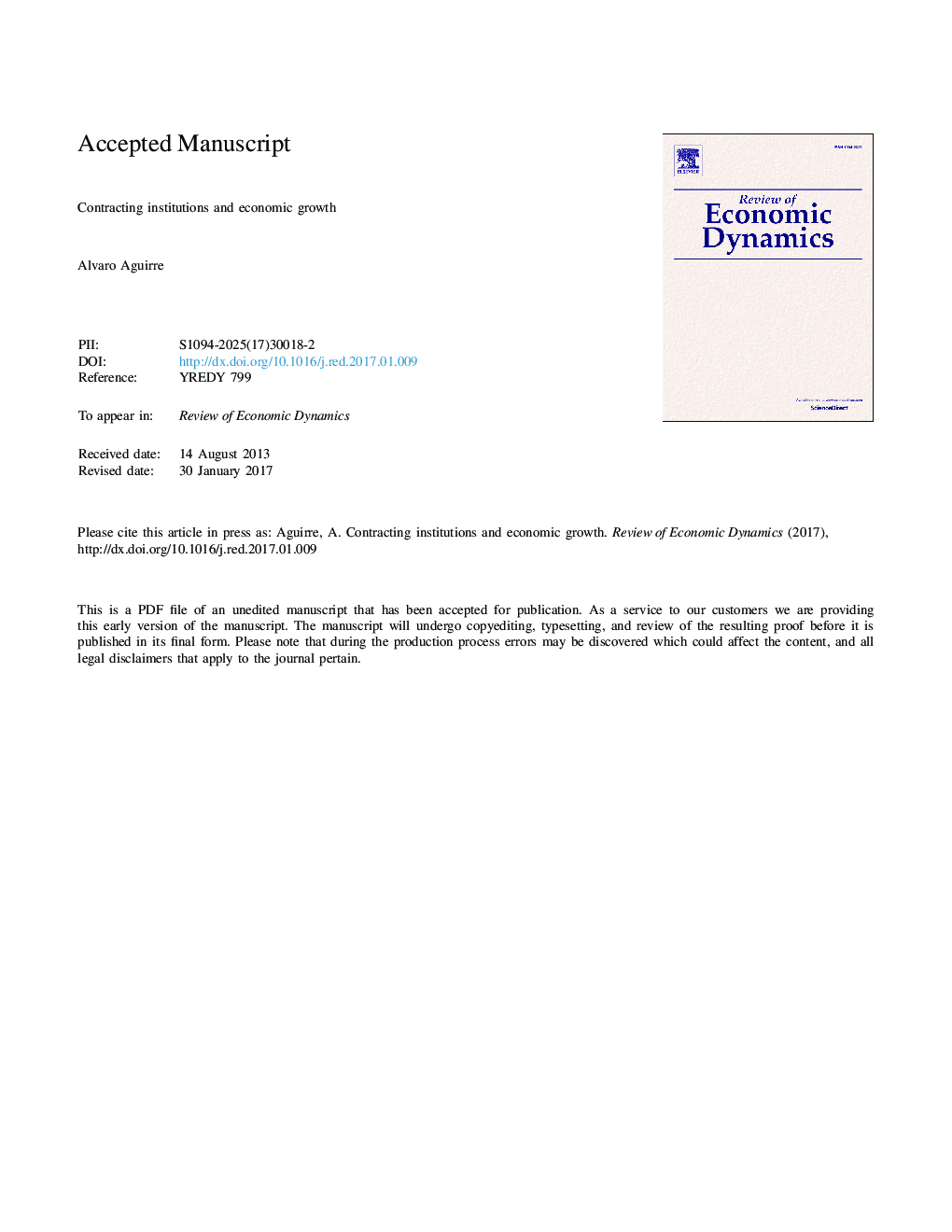| Article ID | Journal | Published Year | Pages | File Type |
|---|---|---|---|---|
| 5104363 | Review of Economic Dynamics | 2017 | 58 Pages |
Abstract
This paper studies the effects of contracting institutions on economic development. A growth model is presented with endogenous incomplete markets, where financial frictions generated by the imperfect enforcement of contracts depend on the difference between future and current output. The former determines the costs of being excluded from financial markets after defaulting. The latter determines the benefits of not servicing current obligations. As the economy approaches its balanced growth path, frictions and their effect on income become more important because the net benefits of honoring contracts decrease as this difference narrows. Therefore, as the economy approaches its steady-state, the effect of contracting institutions on GDP per capita increases. This result is proven analytically and its robustness is explored in a more general quantitative model of heterogeneous agents and incomplete markets. The model delivers a testable prediction which is confirmed using simulated data, and validated empirically using a modification of previous specifications of cross-country regressions on institutions and per capita GDP.
Related Topics
Social Sciences and Humanities
Economics, Econometrics and Finance
Economics and Econometrics
Authors
Alvaro Aguirre,
